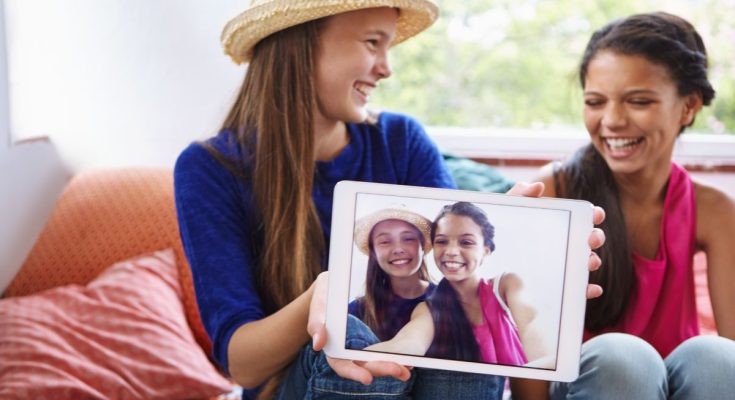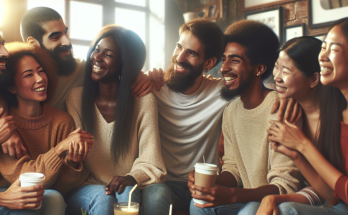Having good friends that you can rely on makes life’s journey that much better. But nurturing strong, lasting friendships requires effort from both parties. An essential skill that helps foster closer bonds is the art of listening. Learning to truly listen and be present for your friends can transform your relationships in profound ways.
What Does it Mean to Really Listen?
Listening goes far beyond just hearing what someone says. It involves giving your full attention and actively engaging with the speaker. Some tips for effective listening include:
- Maintaining eye contact and an open, relaxed posture to help the speaker feel heard.
- Avoiding distractions and focusing entirely on the conversation. Put down your phone, turn off the TV, and give the speaker your undivided attention.
- Withholding judgement and advice. Listen without thinking about how you’ll respond. Simply let the person talk freely without interruption.
- Asking thoughtful questions to show interest and gain clarity. Don’t hijack the conversation.
- Reflecting back what you heard in your own words to confirm understanding. Paraphrase meaningful points.
- Being patient and giving the person adequate time to collect their thoughts and express themselves fully. Don’t rush them.
- Pick up on cues like tone and body language to understand the deeper emotional context behind the words.
Why Listening Matters in Friendships
Listening is one of the most valuable skills for developing meaningful connections. It:
- Shows you genuinely care about the person and value what they have to say. This builds trust.
- Helps you discover shared interests that deepen friendships. You understand where the other person is coming from.
- Allows your friends to freely express themselves, feel heard, and work through challenges in a supportive environment.
- Helps avoid misunderstandings that can strain the relationship. You comprehend them accurately.
- Enables you to offer more insightful, tailored advice since you grasp their full perspective.
- Makes conversations more engaging by being interactive rather than one-sided. Both parties contribute.
Common Barriers to Good Listening
Many bad listening habits get in the way of meaningful connections. Some common barriers include:
Being distracted: If you’re focused on your phone, the TV, or thinking about something else while someone is talking, you aren’t truly listening. Give friends your full attention.
Interrupting: Jumping in before the speaker has finished blocks effective communication. Don’t interrupt.
Judging: Mentally criticizing someone shuts down open sharing. Withhold judgements and listen without bias.
Rehearsing: If you’re busy thinking about your response while the person is still talking, you aren’t listening. Focus on understanding first.
Impatience: When you’re eager to speak, it stops you from listening patiently. Give the person time. Don’t rush responses.
Over-advising: Resist always jumping in with advice. Sometimes friends just need to be heard. Seek to understand first before offering guidance.
Mind-reading: Don’t assume you know what the person means or what they’re thinking. Clarify to gain accurate understanding.
Tips for Becoming a Better Listener
You can train yourself to become a more attentive, empathetic listener using these techniques:
- Establish eye contact: Look directly at the speaker to focus your attention and make them feel truly heard. But don’t stare relentlessly. Maintain a natural gaze.
- Ask questions: Seek clarification if you don’t understand something fully. Questions keep you engaged and show interest.
- Paraphrase: Restate meaningful points back to the speaker in your own words. This confirms you grasped their perspective accurately.
- Reflect feelings: Repeat back the emotions you sensed from the person. For example, “It sounds like you felt very frustrated in that situation.” This builds empathy.
- Avoid distractions: Find a quiet place without interruptions. Give the speaker your complete, undivided attention.
- Be patient: Give adequate time for the person to explain their thoughts before responding. Don’t jump in prematurely.
- Remain neutral: Don’t get defensive if you disagree with something. Keep an open mindset and listen without judgement.
- Take notes: Jot down brief notes to retain key points. But maintain eye contact as much as possible.
- Summarize: At the end, summarize your understanding of the main ideas and ask if you captured everything correctly.
The Benefits of Listening in Friendships
Applying these mindful listening techniques can profoundly deepen your friendships:
- Builds trust: Focusing intently on friends makes them feel valued, understood, and cared for. This fosters trust.
- Creates intimacy: Being vulnerable and sharing inner thoughts and feelings with someone who listens well creates closeness.
- Resolves conflicts: Most fights result from misunderstandings. Listening helps get to the root of disagreements and find solutions.
- Forms connections: You discover common interests when you learn about each other through two-way listening. This bonds you.
- Promotes growth: We often gain valuable insights about ourselves when someone truly listens to our challenges.
- Reduces stress: Feeling heard allows us to get worries off our chest. Listening friends provide therapeutic relief.
- Conveys respect: Listening attentively shows friends they are important and you respect their thoughts and time.
Listening Opens Doors
The conversations we have with friends can be profound. But we have to be willing to listen. Opportunities to support each other arise when we’re fully present. Problems feel less heavy after you share them with an empathetic listener.
Listening requires some effort. But it’s a gift to your friends that keeps giving back. So turn off the TV, put down your phone, and look your friend in the eyes. Make space for their story. The rewards will be invaluable.




